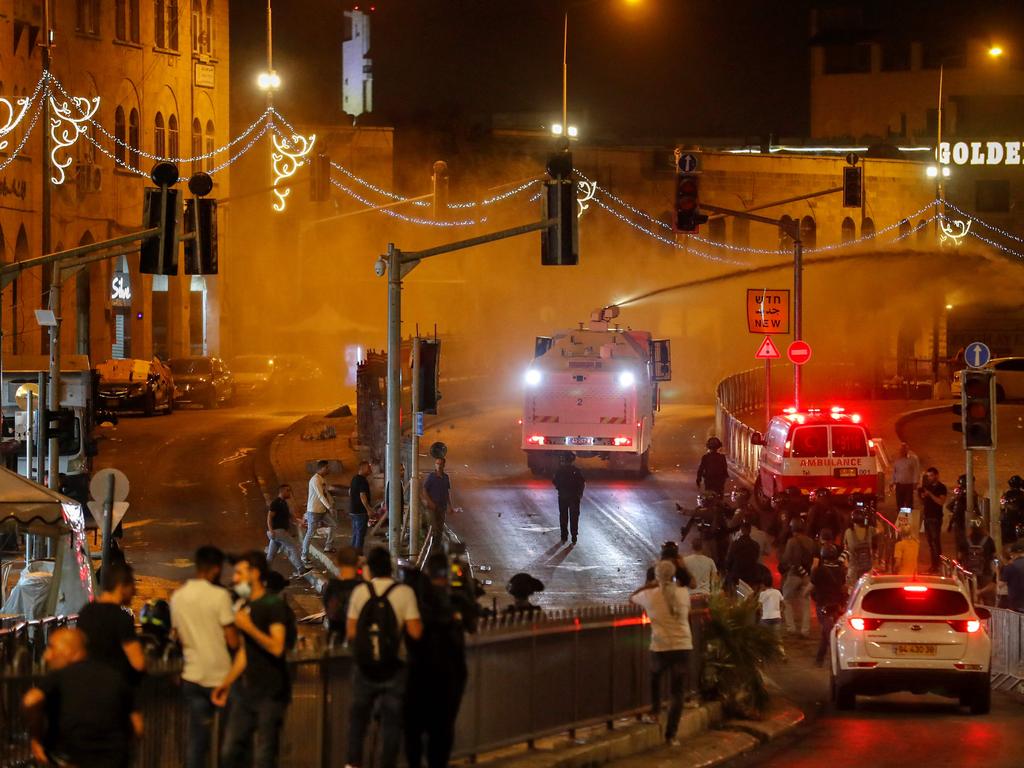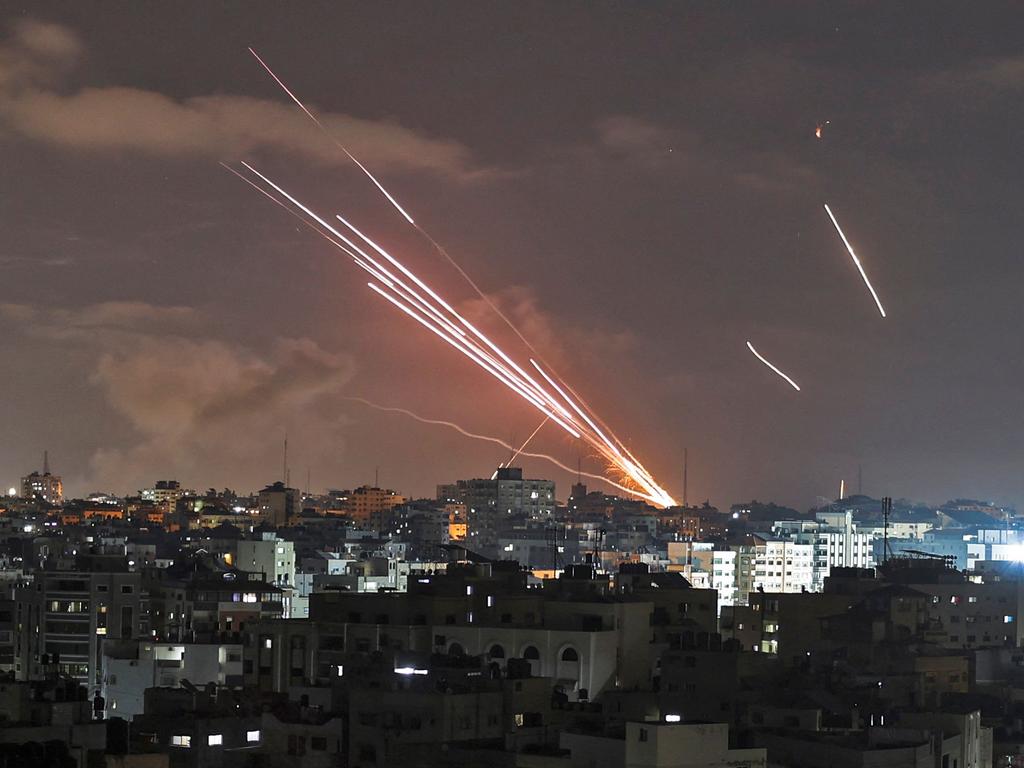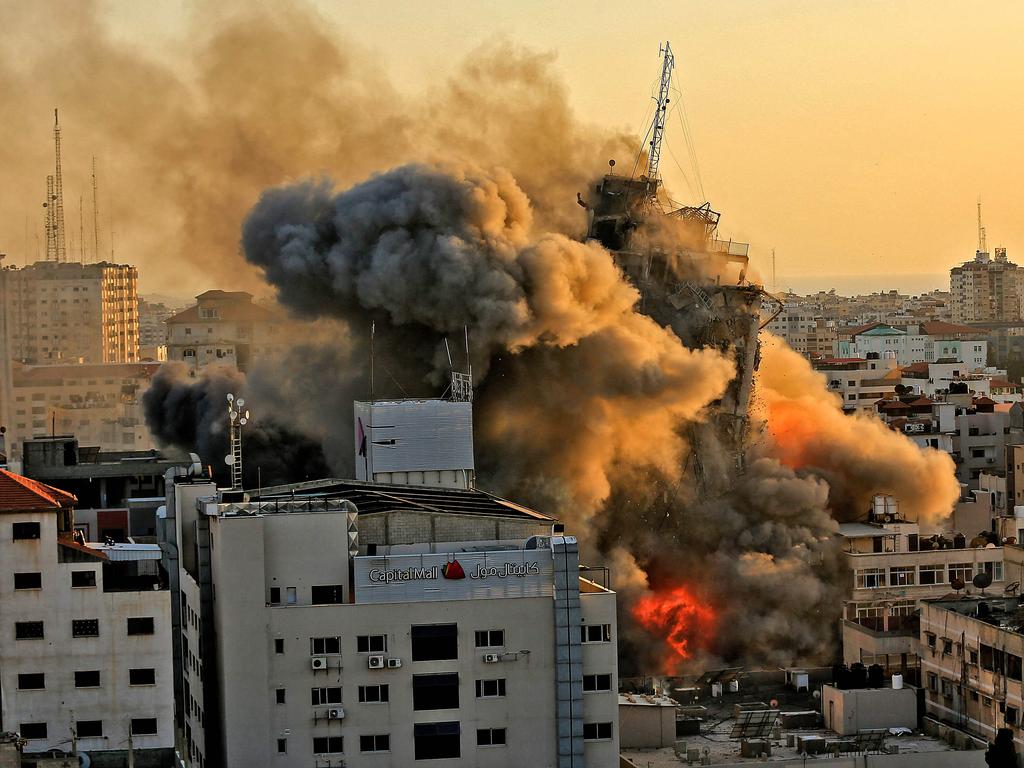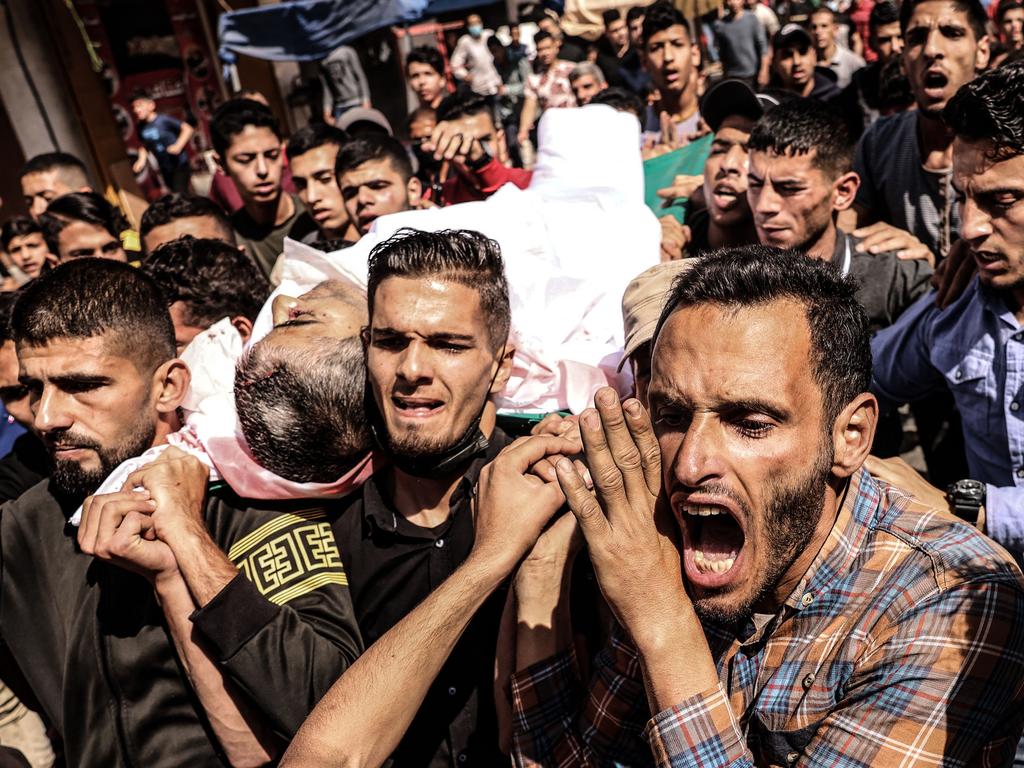‘Worse than raw sewage’: Vile weapon used by Israeli forces
The worst violence in years between Israelis and Palestinians has led to deaths, massive riots and an increasing number of rocket attacks.
There are growing fears the latest conflict between Israelis and Palestinians could soon turn into a “full-scale war”, with dozens of people, including children, already killed as violent attacks ramp up.
Since Monday, Hamas, the Islamist militant group that controls Gaza, have launched roughly 1200 rockets towards Israel, while Israel’s army has carried out more than 350 air strikes against Gaza.
Tensions between the groups boiled over when Israeli riot police clashed with crowds of Palestinians at Jerusalem’s Al-Aqsa mosque, on the last Friday of the Muslim holy month of Ramadan.
RELATED: Rockets fired at Israel as tension flares
Since then, there have been nightly clashes at the compound, with protests also taking place across Jerusalem.
Israeli forces have been using rubber bullets, tear gas and shock grenades against Palestinian protesters, leaving hundreds of people injured.
Israeli forces have also been employing another weapon, referred to by many as “The Skunk” or simply skunk water, in order to disperse and punish protesters.
The nonlethal weapon, dreaded by all who have experienced it, is deployed by trucks that douse protesters in a foul smelling liquid that clings to skin, hair, clothes and buildings.
Those who have been sprayed have described the smell as “worse than raw sewage” and “like a mixture of excrement, noxious gas and a decomposing donkey”.
Skunk water was first used by the Israeli military against protesters in the occupied West Bank in 2008.

Since then, it has become one of the army’s go-to means for dispersing demonstrators.
While the creators of skunk water claim it is nonlethal and non-toxic, the chemicals have been known to cause nausea, violent vomiting and gagging, skin and eye irritation, abdominal pain and can obstruct normal breathing.
The smell can last on the skin for days and can permeate even longer when sprayed over buildings and streets.
Dozens killed, hundreds injured
Israel’s attacks in Jerusalem have been condemned by many global groups, with Amnesty International accusing military forces of using “abusive and wanton force against largely peaceful Palestinian protesters”
Amnesty said Israel has used excessive force over multiple weeks of east Jerusalem protests.
In one incident, it said Israeli forces last week broke up a peaceful circle of Palestinians chanting against an attempt by Israelis to evict them from their homes in the city’s Sheikh Jarrah district.
How quickly it’s forgotten that Israeli forces were firing stun grenades, tear gas, and rubber bullets into the Al-Aqsa mosque full of worshippers… TWO DAYS AGO! pic.twitter.com/Wkgbabbt3t
— Amro Ali (@_amroali) May 12, 2021
Forces on horseback sprinted toward the crowd, trampling a man who was trying to run away, Amnesty said.
The rights group called on the international community “to hold Israel accountable for its systemic violations”.
Israel on Tuesday firmly defended the conduct of its officers, insisting they have responded to violent Palestinian rioters with appropriate measures.
The death toll from the ongoing conflict has risen sharply in recent days, as air strikes and rocket attacks from both Gaza and Israel ramp up.
At least 65 Palestinians, including 16 children, have been killed in the conflict, according to the latest figures from Gaza’s Health Ministry.
In Israel, rocket fire has killed at least six people, including a six-year-old boy.

The armed branch of Hamas – al-Qassam Brigades – said it was “in the process of firing 110 rockets towards the city of Tel Aviv”, and 100 rockets towards the town of Beersheva.
It said the attacks were a “reprisal for the restarting of strikes against civilian homes” and the
destruction of Gaza City’s Al-Farouk tower.
The tower, which spewed black smoke from bright embers following the strike, was described by Israel as housing the Hamas intelligence service, among its latest targets in two days of near relentless air strikes.


Warning of ‘full scale war’ as conflict rages
The United Nations has called on those on both sides of the conflict to cease fire, warning they are on the brink of an all out war.
“Stop the fire immediately. We’re escalating towards a full-scale war,” UN Middle East envoy, Tor Wennesland, wrote on Twitter.
“Leaders on all sides have to take the responsibility of de-escalation. The cost of war in Gaza is devastating & is being paid by ordinary people. UN is working with all sides to restore calm. Stop the violence now.”
However, it the UN’s plea has gone unheard, with Israel’s Defence Minister Benny Gantz earlier vowing more attacks on Hamas and other Islamist militant groups in Gaza to bring “total, long-term quiet” before even considering a ceasefire.
“This is just the beginning,” warned Prime Minister Benjamin Netanyahu.
“We’ll hit them like they’ve never dreamed possible.”
Hamas has also said it is unwilling to back down, with the group’s Qassam Brigades issuing a warning to Israel.
“If you respond we will respond, and if you escalate we will escalate,” they said.
Hamas leader Ismail Haniyeh said if the Israeli forces want to escalate the situation then “the resistance is ready, if they want to stop, the resistance is ready”.




